🧴 Puppy Care Guide: Keep Your Puppy Happy and Healthy
🐾 Introduction
Bringing home a new puppy is exciting — but the first few nights can feel like having a newborn baby.
Whining, restlessness, bathroom breaks… it’s all part of your puppy learning how to adapt to their new life.
Just like humans, puppies need structure and reassurance to develop healthy sleep habits.
This guide will show you how much sleep your puppy really needs, how to create a calming bedtime routine, and what to do if they cry during the night.
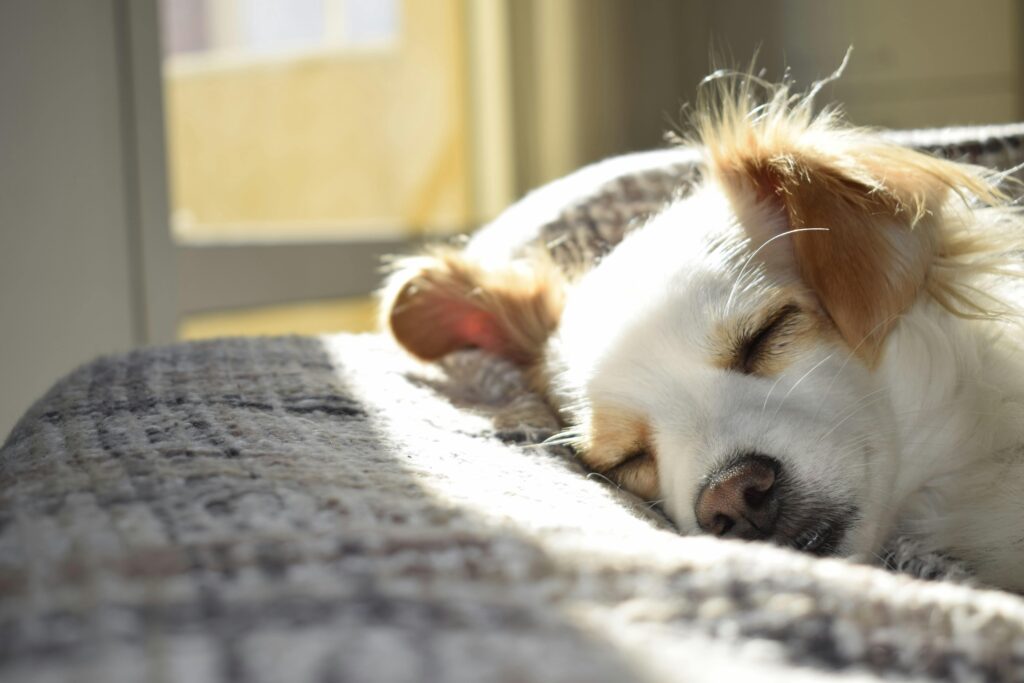
🕒 How Much Sleep Does a Puppy Need?
Puppies grow rapidly, and sleep is essential for that process.
It supports their brain development, muscle growth, and emotional stability.
| Age | Average Daily Sleep | Wake Windows |
|---|---|---|
| 8–12 weeks | 18–20 hours/day | Awake 45–60 min at a time |
| 3–6 months | 16–18 hours/day | Awake 1–2 hours at a time |
| 6–12 months | 14–16 hours/day | Awake 2–3 hours at a time |
💡 If your puppy sleeps a lot — that’s normal! Puppies are like toddlers: play hard, nap hard.
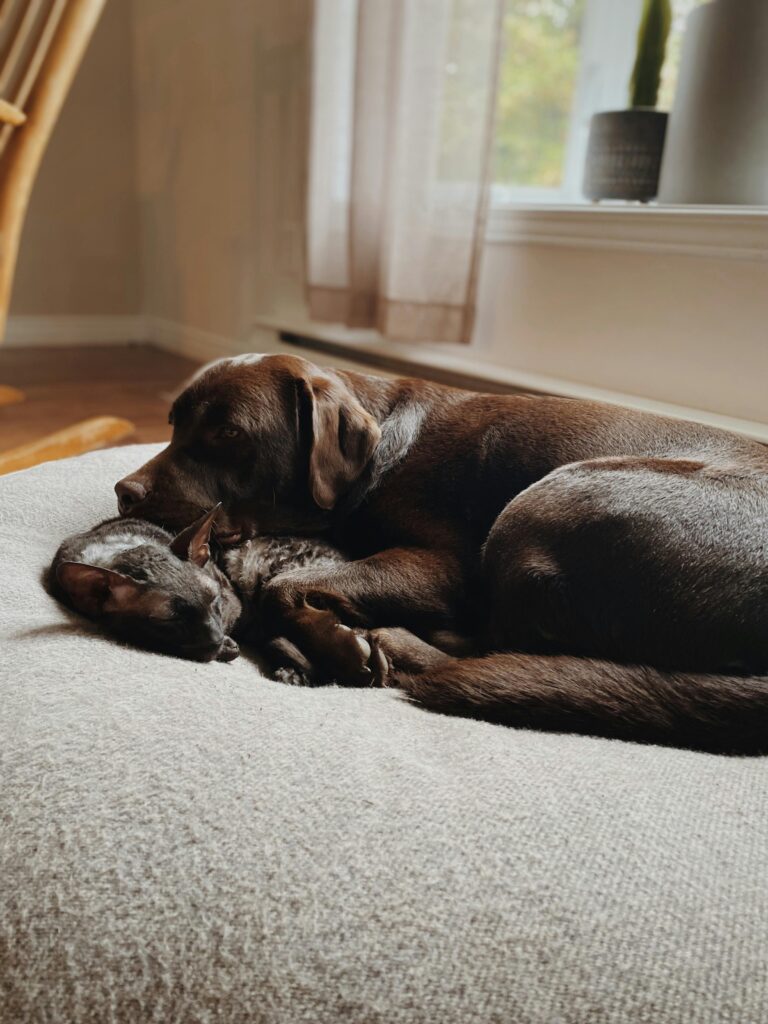
🏡 Creating the Perfect Sleep Environment
Your puppy’s sleep area should feel safe, quiet, and cozy. Think “den” — not “prison.”
🛏️ Ideal Setup:
- Use a crate or small playpen to provide security.
- Add a soft bed or blanket — avoid thick foam for chewers.
- Keep the area away from drafts and direct sunlight.
- Include a stuffed toy or heartbeat plush for comfort.
- Use white noise or a ticking clock for background calm.
💬 The crate is not punishment — it’s a private space where your puppy can relax and feel protected.
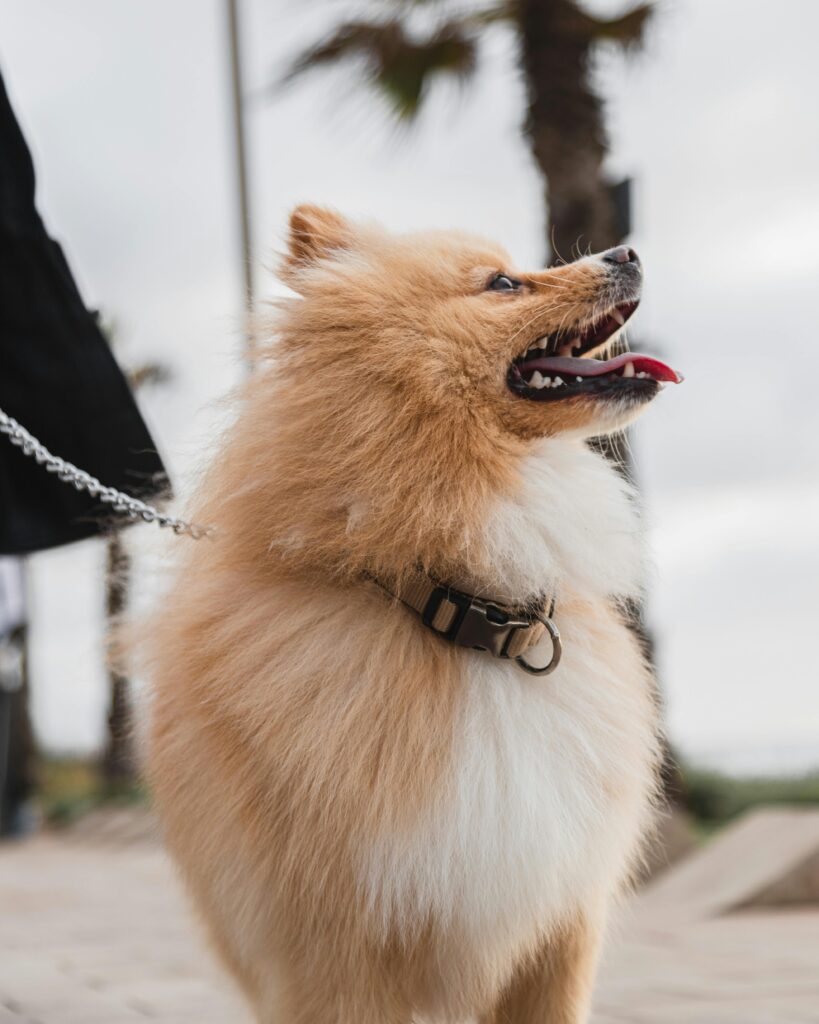
🌙 Building a Healthy Puppy Bedtime Routine
Consistency helps your puppy’s body know when it’s time to rest.
Here’s a simple evening schedule that works for most breeds 👇
🕗 Sample Bedtime Routine
| Time | Activity |
|---|---|
| 7:00 pm | Light play session or short walk to burn energy |
| 7:30 pm | Last meal of the day |
| 8:30 pm | Quiet bonding time (gentle petting, soft talk) |
| 9:00 pm | Final potty break outside |
| 9:15 pm | Into crate with calm tone and treat |
| 9:30 pm | Lights dimmed, white noise on, bedtime |
🧘 Avoid overexciting your puppy right before sleep — calm transitions lead to deeper rest.
💧 The Last Potty Break Rule
One of the top reasons puppies wake up crying is… nature calling.
Their tiny bladders can’t hold all night until they’re older.
⏰ General guideline:
- Under 3 months → potty every 3–4 hours
- 3–6 months → potty every 4–6 hours
- 6+ months → usually can last overnight
👉 Take your puppy out right before bed and praise quietly when they go — no play, no excitement.
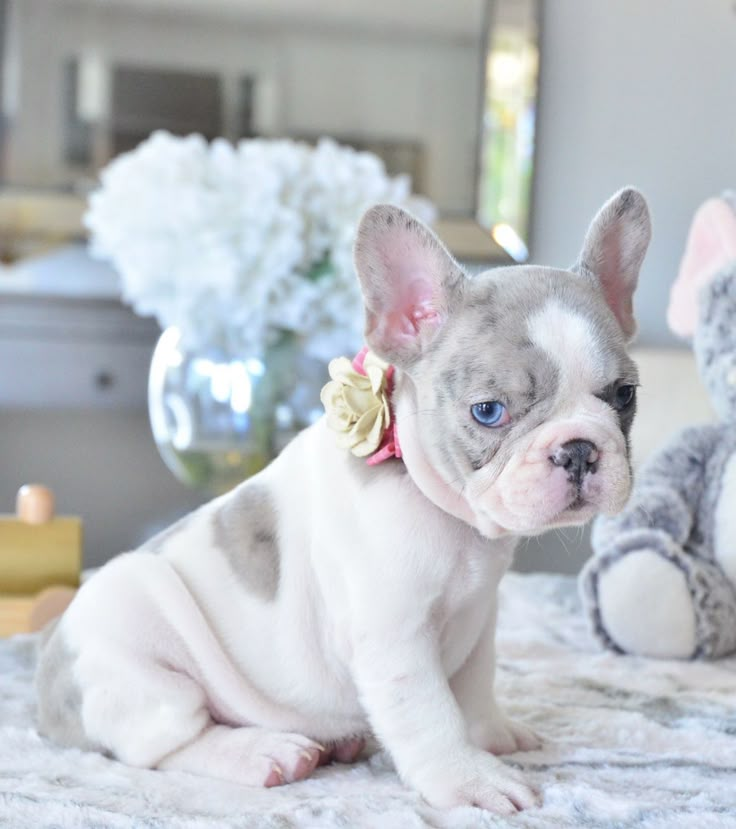
😢 How to Handle Nighttime Whining
Crying is normal for new puppies — they miss their littermates and need reassurance.
Here’s how to handle it without creating bad habits:
✅ Do:
- Speak softly (“It’s okay, good night”).
- Wait a few minutes before reacting — they might settle on their own.
- If the whining continues after 5+ minutes, take them out briefly to potty, then return quietly.
❌ Don’t:
- Yell or scold — it creates fear.
- Take them into your bed — it teaches dependency.
- Give attention every time — they’ll repeat it to get noticed.
💡 The goal is calm reassurance, not attention-based comfort.
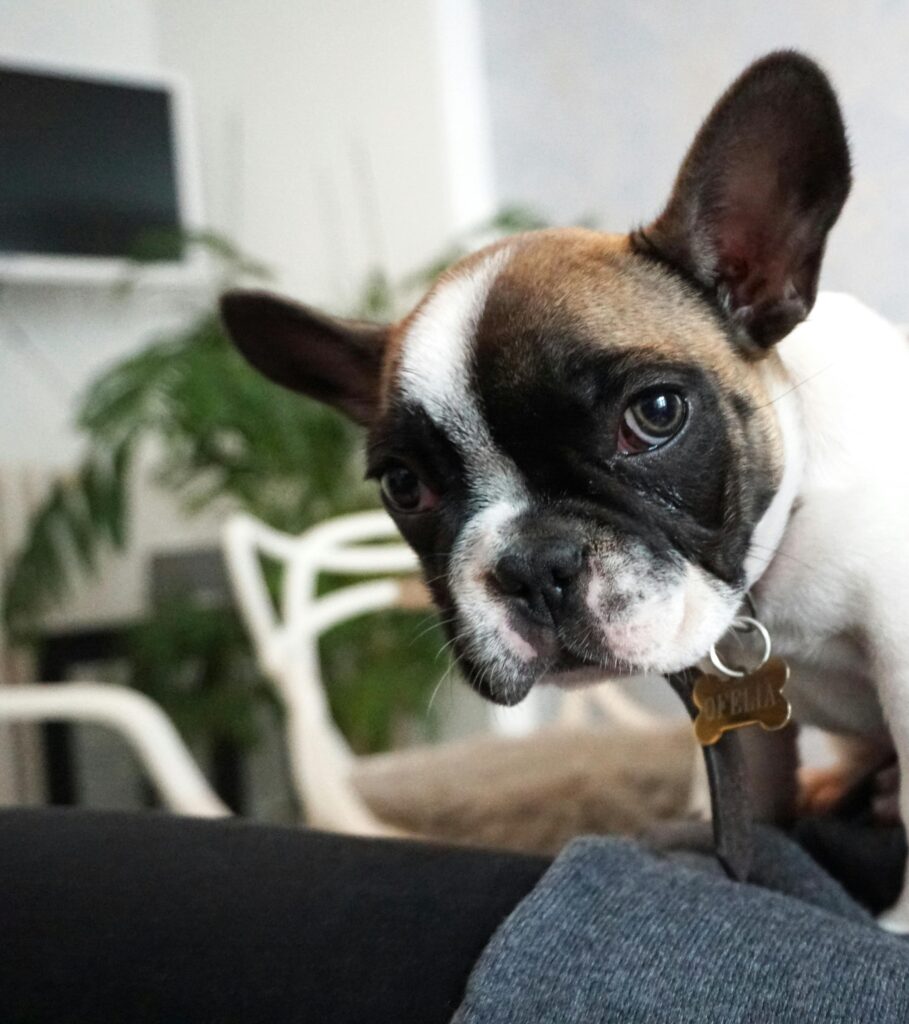
🐶 Daytime Naps & Energy Balance
Daytime rest affects nighttime sleep. Puppies who nap too much during the day may stay awake at night, and vice versa.
A good rhythm is 2–3 play sessions followed by naps:
| Time | Activity |
|---|---|
| 8 am | Breakfast + potty |
| 9–10 am | Playtime |
| 10–12 pm | Nap |
| 12–2 pm | Training + social time |
| 2–4 pm | Nap |
| 6–8 pm | Short walk + calm play |
| 9 pm | Bedtime |
🎯 Follow your puppy’s natural rhythm — but avoid overstimulation before bed.
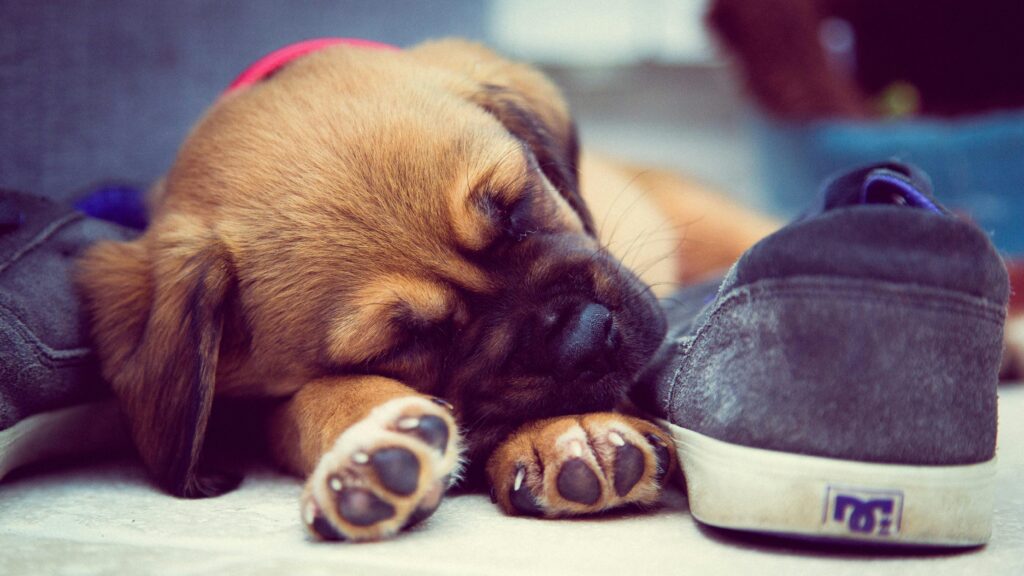
🧠 Teaching Your Puppy to Sleep Alone
Learning to sleep independently is key to preventing separation anxiety.
Step-by-step desensitization:
1️⃣ Start crate naps during the day when you’re nearby.
2️⃣ Use gentle background noise (radio, white noise).
3️⃣ Reward calmness — never release your puppy when whining.
4️⃣ Gradually move the crate farther from your bed.
💬 Within a few weeks, your puppy will associate the crate with safety and sleep, not isolation.
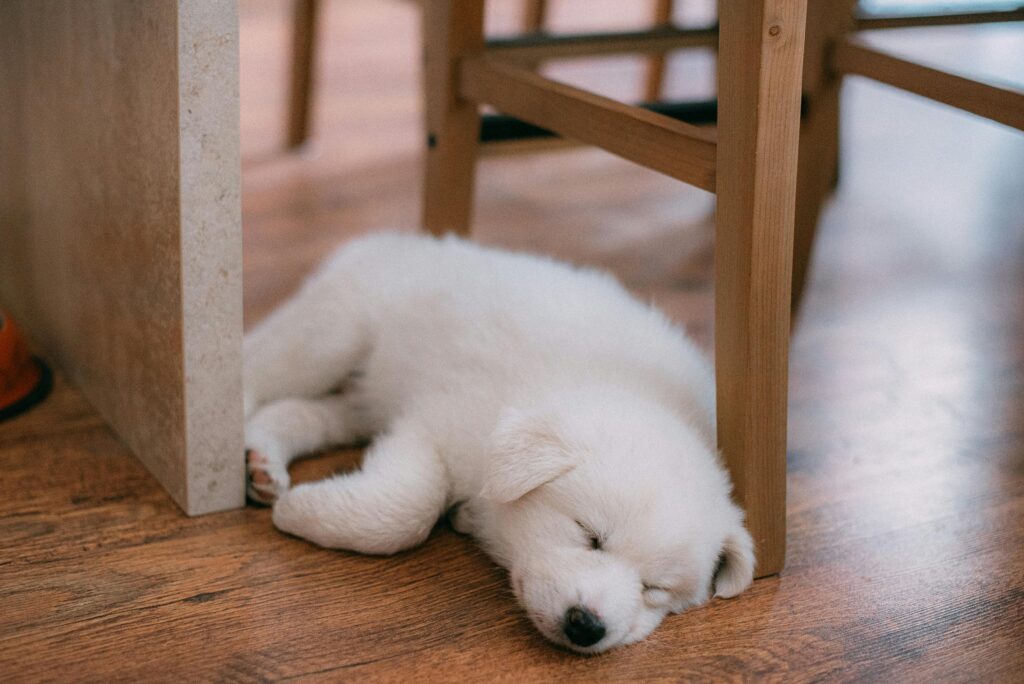
🌤️ What If My Puppy Wakes Up Early?
Early risers are common!
If your puppy wakes up before sunrise barking or scratching, try this:
- Wait a few seconds before opening the crate (avoid rewarding noise).
- Take them out calmly for potty only.
- Keep lights low and voices quiet.
- Don’t feed or play until your set morning time.
💡 This teaches your puppy that morning starts on your schedule, not theirs.
🚫 Common Sleep Problems (and Fixes)
| Problem | Likely Cause | Quick Fix |
|---|---|---|
| Whining nonstop | Separation anxiety | Gradual crate desensitization |
| Wakes up to potty too often | Overhydration at night | Limit water after 7pm |
| Chewing bed or bars | Boredom | Add chew toy or frozen Kong |
| Won’t settle after play | Overtired or overstimulated | Quiet wind-down time |
| Sleeps all day | Lack of stimulation | More walks & playtime |
🎯 Balance is key — not too much activity, not too little.
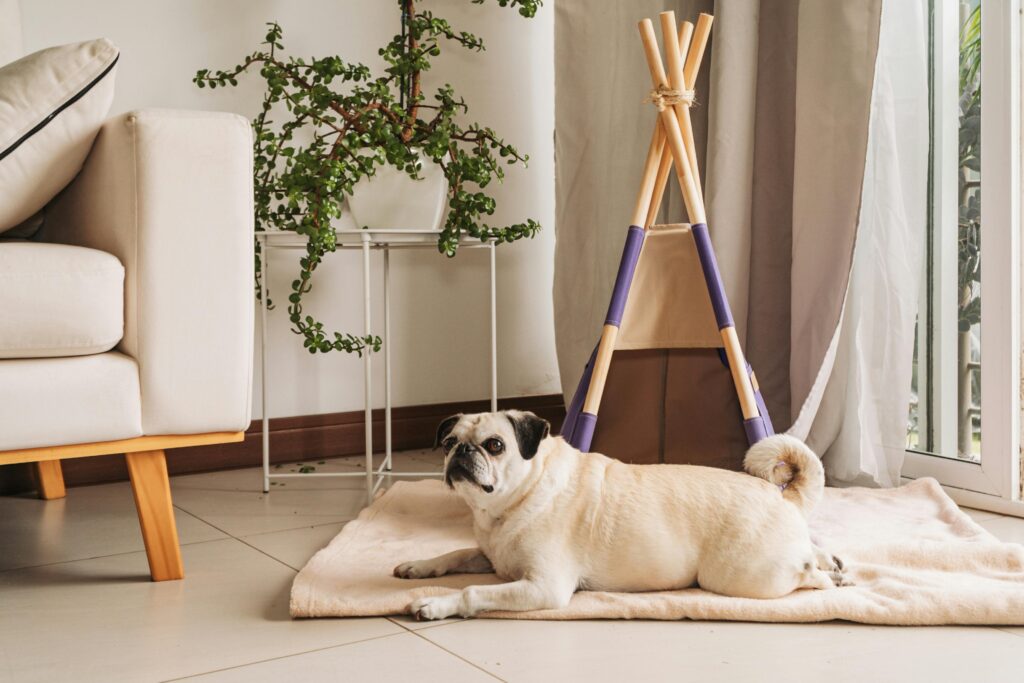
🩺 Health and Sleep: When to Call the Vet
If your puppy:
- Snores heavily or breathes irregularly
- Cries despite routine and comfort
- Refuses to lie down or constantly changes position It could signal discomfort, pain, or digestive issues.
👉 Always consult your vet if the pattern persists beyond 2–3 nights.
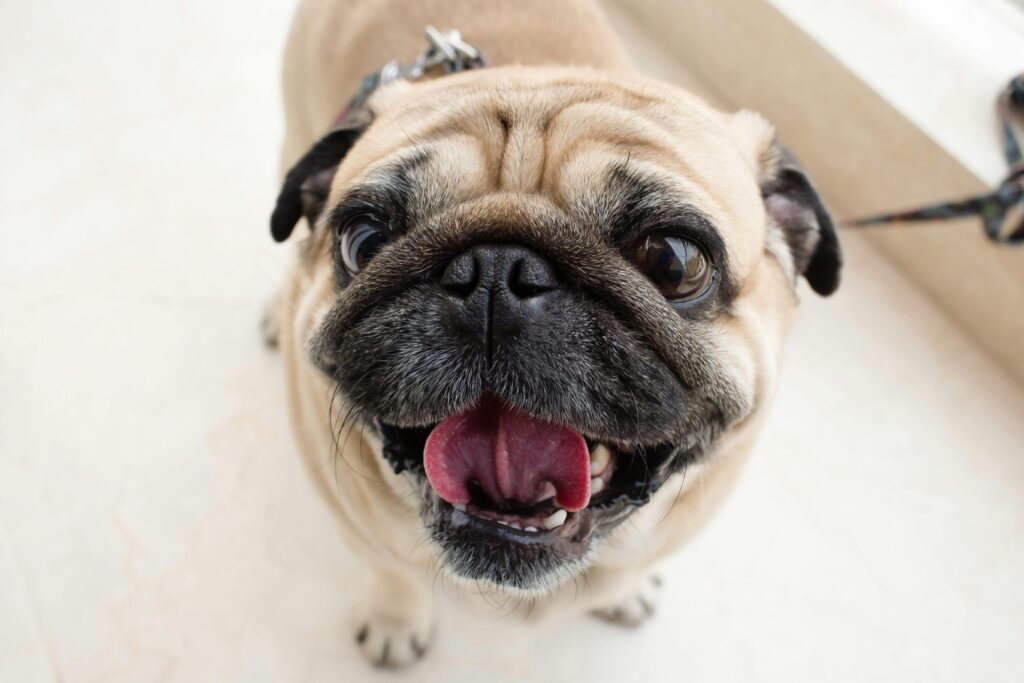
🐕 Conclusion
Healthy sleep is the foundation of a happy, calm puppy.
With a warm space, a routine, and gentle reassurance, your little one will quickly learn to rest peacefully through the night.
🌙 Every night that ends in quiet dreams builds a confident, trusting puppy ready for new adventures tomorrow.
💬 Puppy Sleep FAQ
Should I let my puppy sleep in my bed?
Not at first. It creates dependency. Once they’re house-trained, you can decide based on comfort and rules.
How long before my puppy sleeps through the night?
Usually between 4–6 months old. Small breeds may take a bit longer.
Should I cover my puppy’s crate at night?
Yes — a light blanket can help them feel cozy and reduce distractions.
My puppy naps too much — is that bad?
No. Puppies sleep up to 20 hours a day! Growth and brain development happen during sleep.
What’s the best way to wake up my puppy?
Soft voice and gentle touch. Never startle them — sudden wake-ups create anxiety.

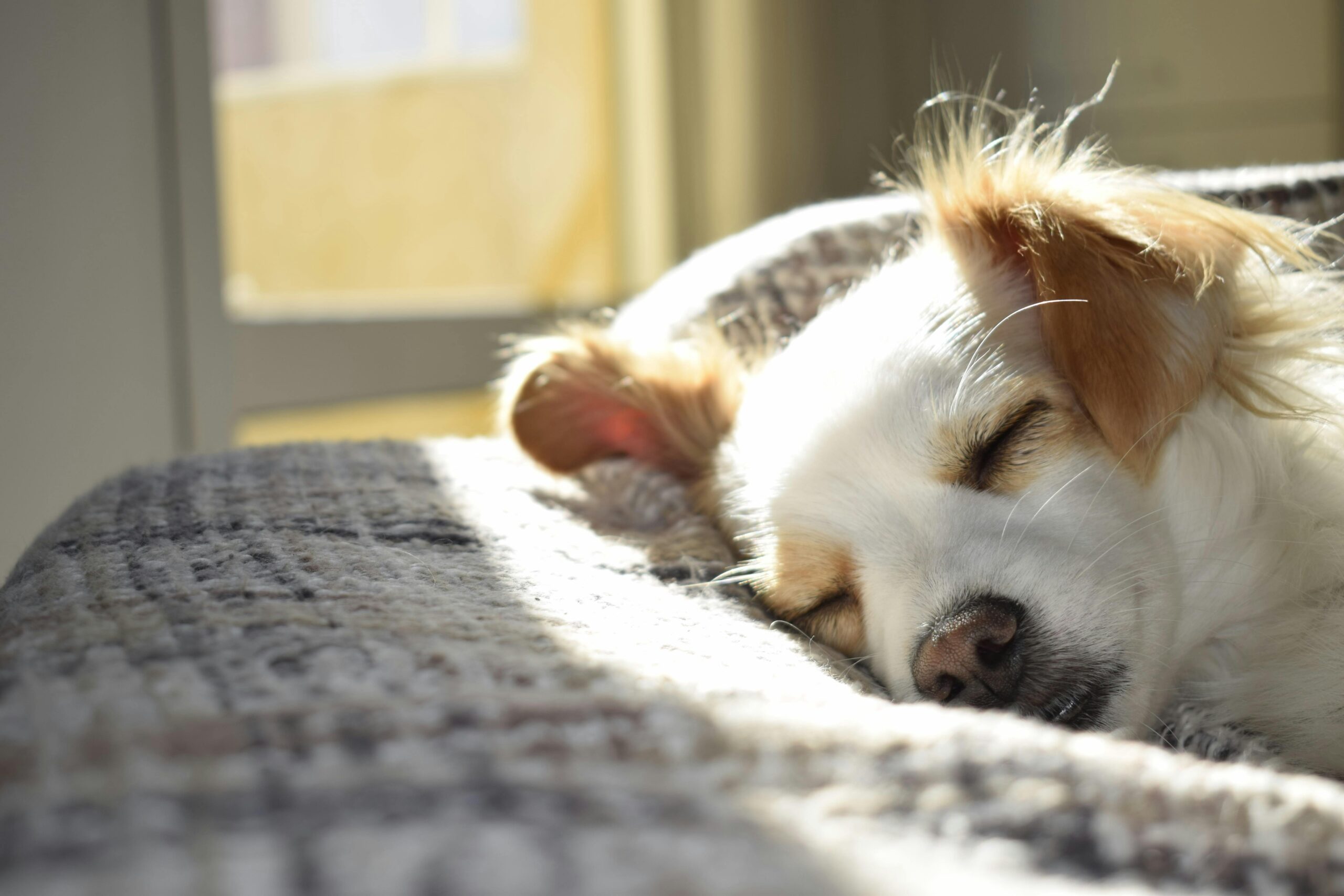
Leave a Reply